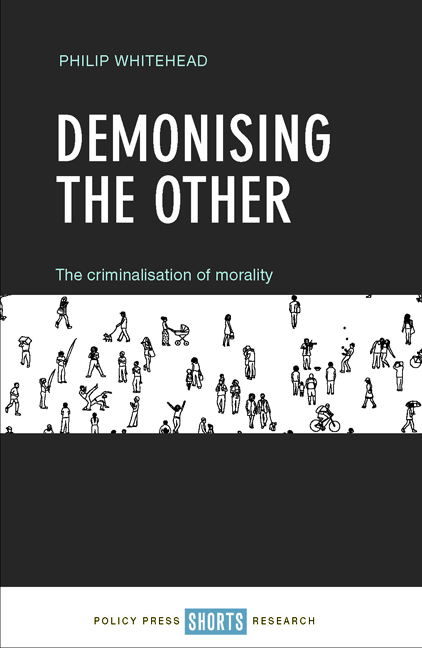Book contents
- Frontmatter
- Dedication
- Contents
- Prologue
- One Framing the other: stepping into the stream of history
- Two Criminalising the other: a criminal justice excursus
- Three Contesting the other: sinking ethical shafts
- Four Transcending the other: moral economy and universal ethics
- Concluding comment
- References
- Index
One - Framing the other: stepping into the stream of history
Published online by Cambridge University Press: 08 April 2022
- Frontmatter
- Dedication
- Contents
- Prologue
- One Framing the other: stepping into the stream of history
- Two Criminalising the other: a criminal justice excursus
- Three Contesting the other: sinking ethical shafts
- Four Transcending the other: moral economy and universal ethics
- Concluding comment
- References
- Index
Summary
A biological springboard
The weight of evidence shoring up the historical record strongly suggests that Homo sapiens have not afforded themselves the opportunity to live alongside each other under conditions of a shared global ethic or moral economy (see Götz, 2015). The earth began to form 4.5 billion years ago, long before the appearance of the genus Homo 2.5 million years ago. Neanderthals can be traced back 500,000 years, and Homo sapiens 200,000 years. These evolutionary staging posts occurred long before the Agricultural Revolution of 12,000 years ago that signalled the domestication of plants and animals. This made it possible, for the first time, to establish permanent human settlements. Prior to this tipping point that decisively altered the course of human life on earth, our ancestors lived in small groups as hunter-gatherers. Subsequently, the ability to grow crops to sustain life in a permanent location presented the challenge of how to exist in ‘mass cooperation networks, when they lacked the biological instincts to sustain such networks’ (Harari, 2014, p 133). It is suggested that Homo sapiens were not endowed with the biological equipment to live alongside each other in conditions of mutual coexistence. There was no essential human nature predisposed towards cooperation. This was manifested as towns and cities grew bigger, and early civilisations expanded their frontiers through flexing their imperialistic muscles, toned by violence towards others. Consequently, over recent millennia, the self has struggled to live with the other, nation alongside nation, in universal cooperation networks. We are up against it to discover a period of history that prioritised people before profit, ethics before economics, and the collective interest before national self-interest, under conditions of equality and mutual respect for the lives of others.
If we follow the explanation sketched by Harari (2014), it is suggested that our biological inability to achieve cooperative human relations was compensated for by cultivating shared myths or imaginary scripts. These myths and scripts – religious world views, belief systems and structures of meaning and value – were the ingredients that facilitated the transition from raw nature to human culture. Psychoanalytically speaking, this was the transition from the Real to the Symbolic in order to impose a facade of meaning and purpose that enabled people to live together. We will return to what this means later.
- Type
- Chapter
- Information
- Demonising the OtherThe Criminalisation of Morality, pp. 7 - 24Publisher: Bristol University PressPrint publication year: 2018



